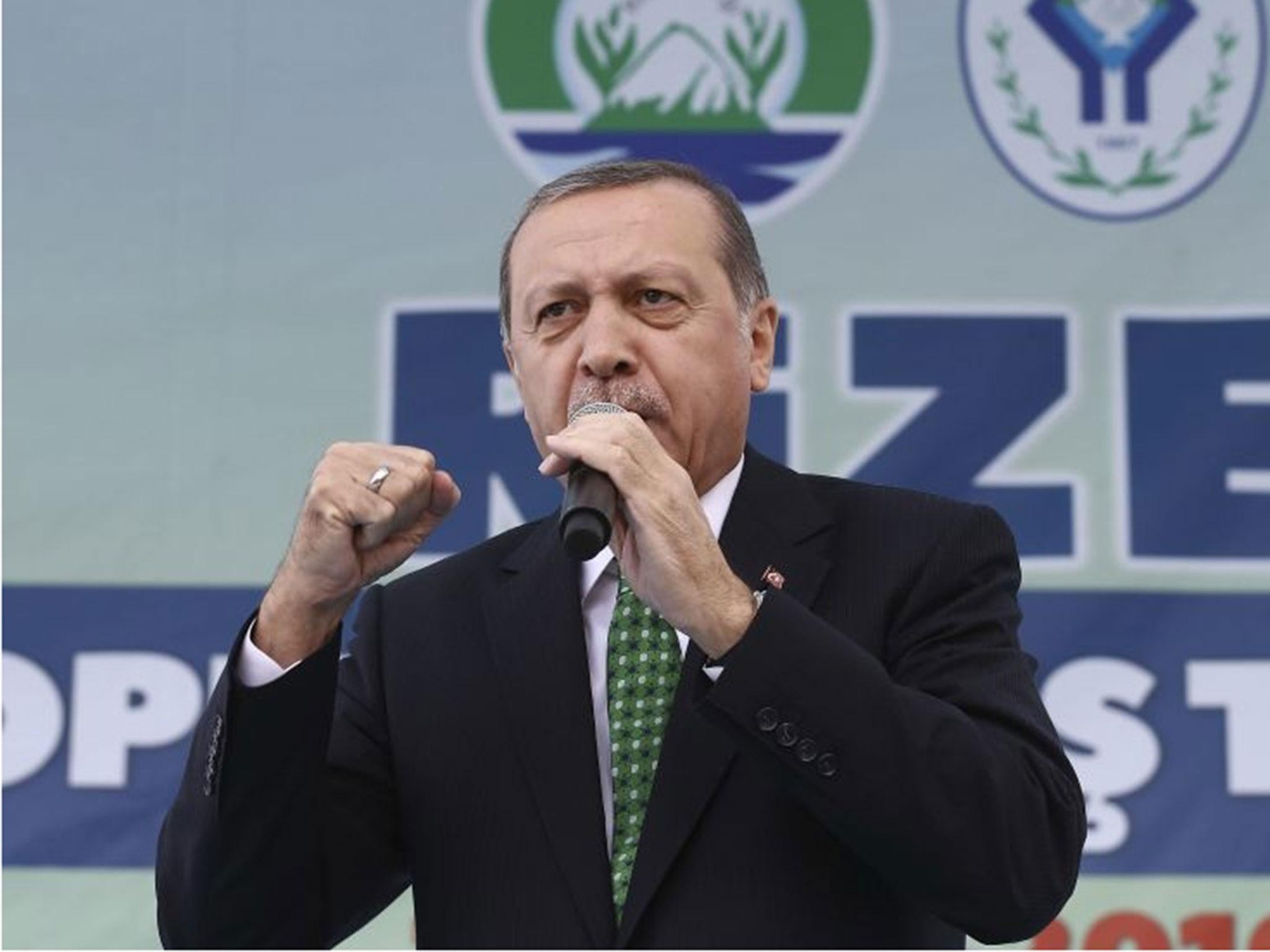Turkey’s Erdogan looks for new constitutional powers in renewed bid to become ‘executive president’
President Recep Tayyip Erdogan has long wanted an executive presidency – a Turkish version of the system in the United States or France

Turkey's government will soon submit proposals to parliament for constitutional changes to expand the powers of President Recep Tayyip Erdogan.
“The necessary constitutional changes offered by the AKP [Justice and Development Party] will be offered to parliament very soon,” Prime Minister Binali Yildirim told a meeting of his party in parliament.
He said the changes were needed to “eliminate confusion from the system”.
The government indicated it would revive efforts to change the constitution last week when the Nationalist Movement Party (MHP) indicated it would not oppose a national vote on the issue.
Any constitutional change requires the support of at least 367 deputies in the 550-seat assembly to pass directly, and of 330 deputies to go to a referendum
Although the MHP is the fourth party in parliament by seats won, its support would be enough to allow the referendum to go ahead – even if it was opposed by the secular Republican People’s Party (CHP) and pro-Kurdish People’s Democratic Party (HDP).
The AKP currently has 317, or 316 excluding speaker Ismail Kahraman.
HMP leader Devlet Bahceli, whose party controls 40 seats in parliament, firmly indicated he could back the referendum on Tuesday.
He said a “healthy” outcome could be achieved if the AKP submits a proposal to parliament that is “sensitive” to the concerns of the MHP.

Mr Erdogan, prime minister since 2003, was elected president in August 2014 – the first time the Turkish head of state was chosen by universal suffrage.
He has since transformed what had become a more ceremonial role and began concentrating powers in what opponents said is a violation of the existing constitutions.
Mr Erdogan ridiculed complaints changes to the constitution will make him a dictator, saying presidential systems exist in France and the United States.
Some opinion polls have shown the majority of Turks do not want an executive presidency and the secularist CHP and pro-Kurdish HDP both oppose the change.
However, following a wave of patriotism since the defeated 15 July coup attempt that has consolidated Mr Erdogan's power and popularity, the government appears happy to go to a referendum.
Following the successful suppression of the uprising, which killed 265 people, Mr Erdogan has purged the armed forces, police and civil servants of those he claimed have links to Fethullah Gulen, who Mr Erdogan accuses of being behind the plot.
Turkish police have so far arrested an estimated 32,000 people in connection with the coup attempt and a further 58,000 have been sacked.
Additional reporting by agencies
Join our commenting forum
Join thought-provoking conversations, follow other Independent readers and see their replies
Comments
Bookmark popover
Removed from bookmarks